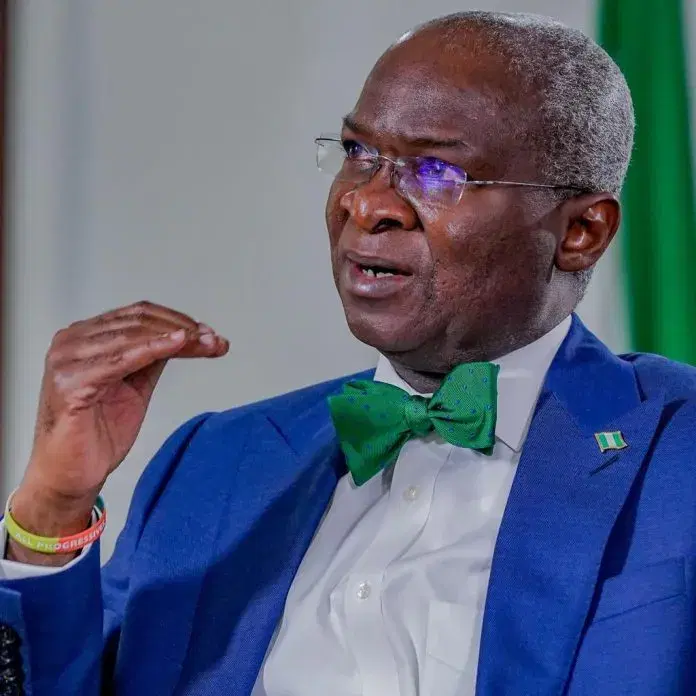Why sports must be part of Nigeria’s development plan – Fashola

Former Minister of Works and Housing, Babatunde Fashola has called for the need for sports to be a central pillar in Nigeria’s national development strategy, describing it as a vital tool for economic growth, job creation and youth empowerment.
Fashola made this known on Sunday while delivering a keynote address at the launch of an autobiography by veteran Nigerian sports, journalist Mumini Alao, held at the University of Lagos (UNILAG).
Speaking on the topic “Re-thinking the current football business model in Nigeria as a catalyst for sports development”, Fashola recalled that during his tenure as minister, he had argued for sports to be included in the 2017–2020 Economic Recovery and Growth Plan (ERGP), alongside infrastructure, agriculture, transport, and energy.
“In my time as minister, when the Federal Executive Council was debating the Economic Recovery and Growth Plan ERGP (2017-2020) to take the country out of the recession, I argued in council that sports should be one of our pillars of development and economic growth to create jobs, apart from infrastructure, agriculture, transport, energy, and the usual suspects,” he said.
Outlining steps needed to maximise the sector’s potential, Fashola called for nationwide awareness of sports as a business and profession, manpower development from primary to tertiary levels, and an overhaul of infrastructure, including integrating stadiums with transport systems.
He said, “We must then develop the manpower capacity for training talent, nurturing talent, and optimising their potential into positive outcomes. This will involve the full review of our education curriculum from primary school through secondary schools, polytechnics, and universities.
“It will involve the National Union of Teachers (through the Physical Education teachers), the association of Nigerian Principals of schools, and the National University Commission (NUC) to develop faculties for specialising in sports education in universities (where they do not already exist).
“I remain mindful of cadet or amateur sports as distinct from professional sports and how they can feed into each other. That must start with specialised personnel such as the Physical Education Teacher (P.E.), of which my last check revealed that there are about 747 in 406 schools in Lagos who hold degrees such as B.Sc Education in Human Kinetics, Physical and Health Education. But this platform does not permit me to go into more of the detail.”
He also stressed the importance of community-based sports facilities, safety and security in sporting arenas, clear governance structures with consistent calendars, and incentives such as tax credits and import duty concessions to attract private investment.
On funding, he argued, “Almost too often we agonise about funding without developing a workable plan. If there is a good plan, funding will follow it.”
Fashola cited Lagos State’s previous sports calendar, which ran from March to December and included events such as the Governor’s Tennis Cup, state-wide school sports, and the annual Boxing Day finals at Rowe Park, as an example of sustainable sports programming.
The post Why sports must be part of Nigeria’s development plan – Fashola appeared first on Vanguard News.







